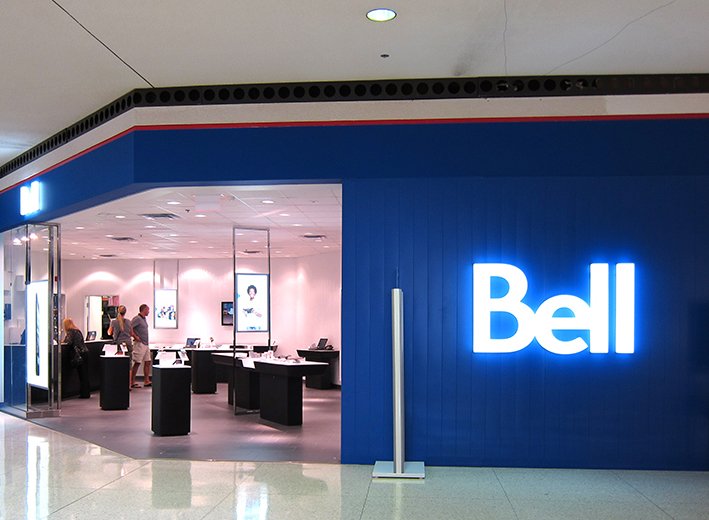Bell paves way for higher prices across Canada with MTS deal

In many cities across Canada, the announcement that BCE Inc. had purchased MTS, Manitoba's largest wireless provider, was met with a resounding shrug. Why should it matter to those in Ontario, Alberta or British Columbia that the name on their bill will soon change for a million people in the middle of the country?
Simply, because MTS has traditionally undercut the Big Three — Rogers, Telus and Bell — in its native province, forcing the companies to offer rates often 50% less than those in Ontario, British Columbia and Alberta. For example, Bell's 10GB share plan in Manitoba costs $80; the same deal goes for $150 in Ontario.
Those discrepancies are familiar to the have-nots, the millions of wireless customers clambering for a compromise between fast networks and lower prices. In provinces with so-called regional incumbents, such as Manitoba and Saskatchewan, the local players were given ample time and investment to establish footholds as utilities long before national wireless carriers were established.
There are millions of wireless customers clambering for a compromise between fast networks and lower prices
The success of MTS and SaskTel, Saskatchewan's Crown-owned carrier with a similar suppressing impact on wireless prices, motivated the previous federal government to establish a policy whereby four wireless providers would compete in every province in the country. It all but chose Wind Mobile to be that alternate, setting aside ample spectrum in recent wireless spectrum auctions for the company to use to establish an LTE network, which it is building with parent company Shaw's assistance.
But now that MTS is set to be dissolved into BCE Inc., renamed Bell MTS and housing Bell Mobility's Western headquarters, the former government's policy will likely be undermined. In removing MTS and its impact, Bell is able to reset prices and expectations for the million-plus customers who rely on the regional carrier's extensive LTE network — a network it built with Rogers to facilitate high-capacity LTE in large cities like Winnipeg and Brandon, and far-reaching signals in more rural parts of the province.
Alongside the acquisition, Bell promises to invest $1 billion into Manitoba's telecom infrastructure, bringing ultra-fast LTE-Advanced to wireless customers, along with fiber-to-the-home network to facilitate home internet and Fibe TV. But such window dressing masks the insidious nature of this slow undermining of what remains one of the few truly competitive markets in the country, leaving Saskatchewan as the sole province for which $80 for 10GB is attainable.
Beholden to shareholders, Rogers, Telus, and Bell have established Herculean networks of integrated wireless, wireline, television, internet, content creation and distribution.
Canadians have long sought alternatives to the Big Three and their high prices. Beholden to shareholders, Rogers, Telus, and Bell have established Herculean networks of integrated wireless, wireline, television, internet, content creation and distribution, with the telecom regulator reticent to establish limits on pricing lest it disturb a free market. And while it can't be denied that Canadians enjoy some of the fastest, most reliable and modern networks in the world, the cost per gigabyte on the average mobile plan has actually risen over the past three years, bucking trends all over the world. By eliminating MTS from the fray, Bell is able to reinforce its dominance and, worse, retroactively paint almost the entire country with the same pricing brush.
Get the latest news from Android Central, your trusted companion in the world of Android
To Bell, spending upwards of $4 billion to purchase MTS is likely far more about establishing a foothold in the West to take on Shaw, which, now that it has Wind Mobile, is gunning for the Big Three in a big way. But whether it will be possible for Shaw to make money in mobile by using the same undercutting tactics that kept MTS in business for so long remains to be seen — if Shaw even wants to do that in the first place.
There is competition in the Canadian wireless market. It just doesn't result in lower prices.
That there is no competition in the Canadian wireless market is a misnomer; carriers compete voraciously for customers, quarter after quarter. That competition, however, comes at the expense of price drops, instead of fuelling them, as is the case in so many other countries. Canada's lack of a healthy MVNO market — or practically any MVNO market — exacerbates the problem, since it forces companies to invest billions infrastructure, often up front, before becoming viable players in the wireless space. Such is the dominance of Rogers, Telus, and Bell.
Now that MTS is fading, and its impact on the Manitoba market with it, the highly-consolidated Canadian wireless market has to contend with even less choice in how we increasingly connect, often exclusively, to the internet.

Daniel Bader was a former Android Central Editor-in-Chief and Executive Editor for iMore and Windows Central.
